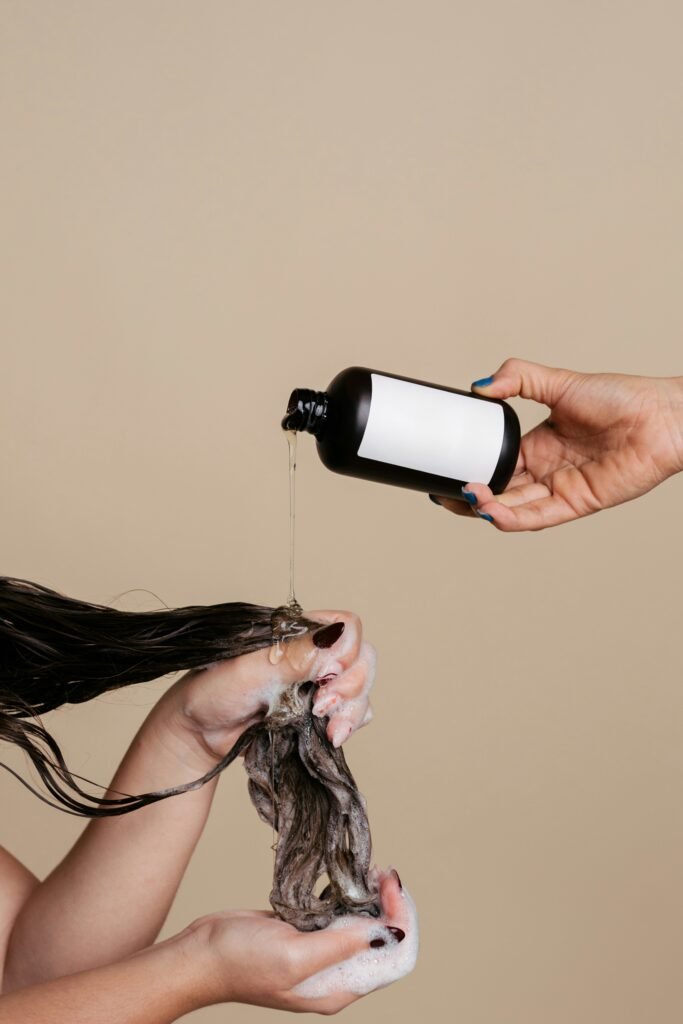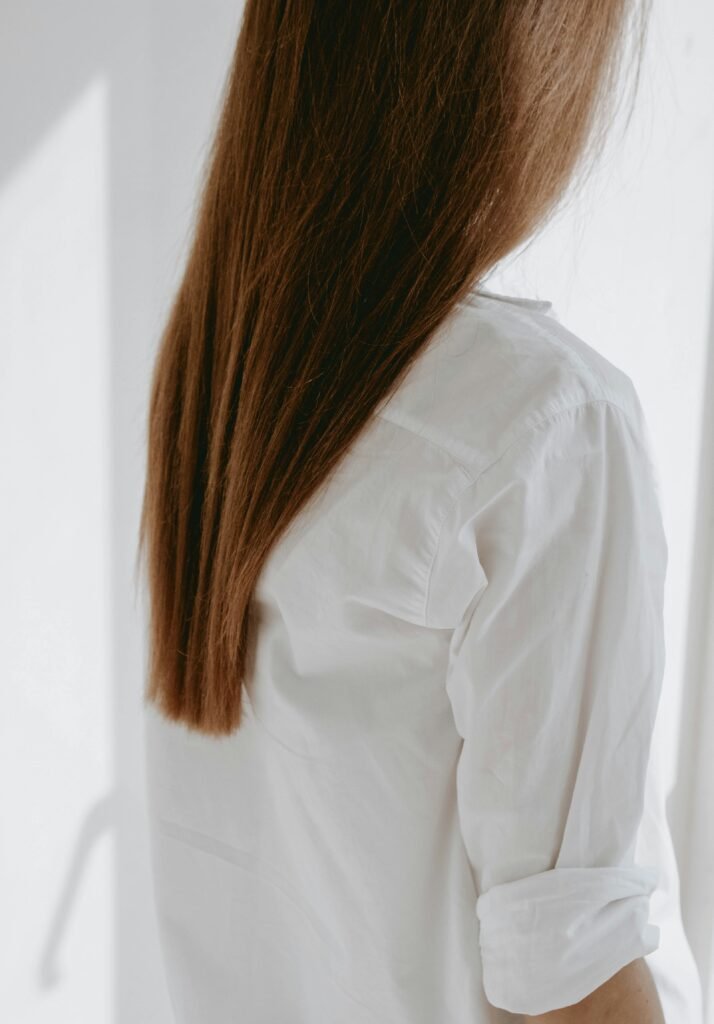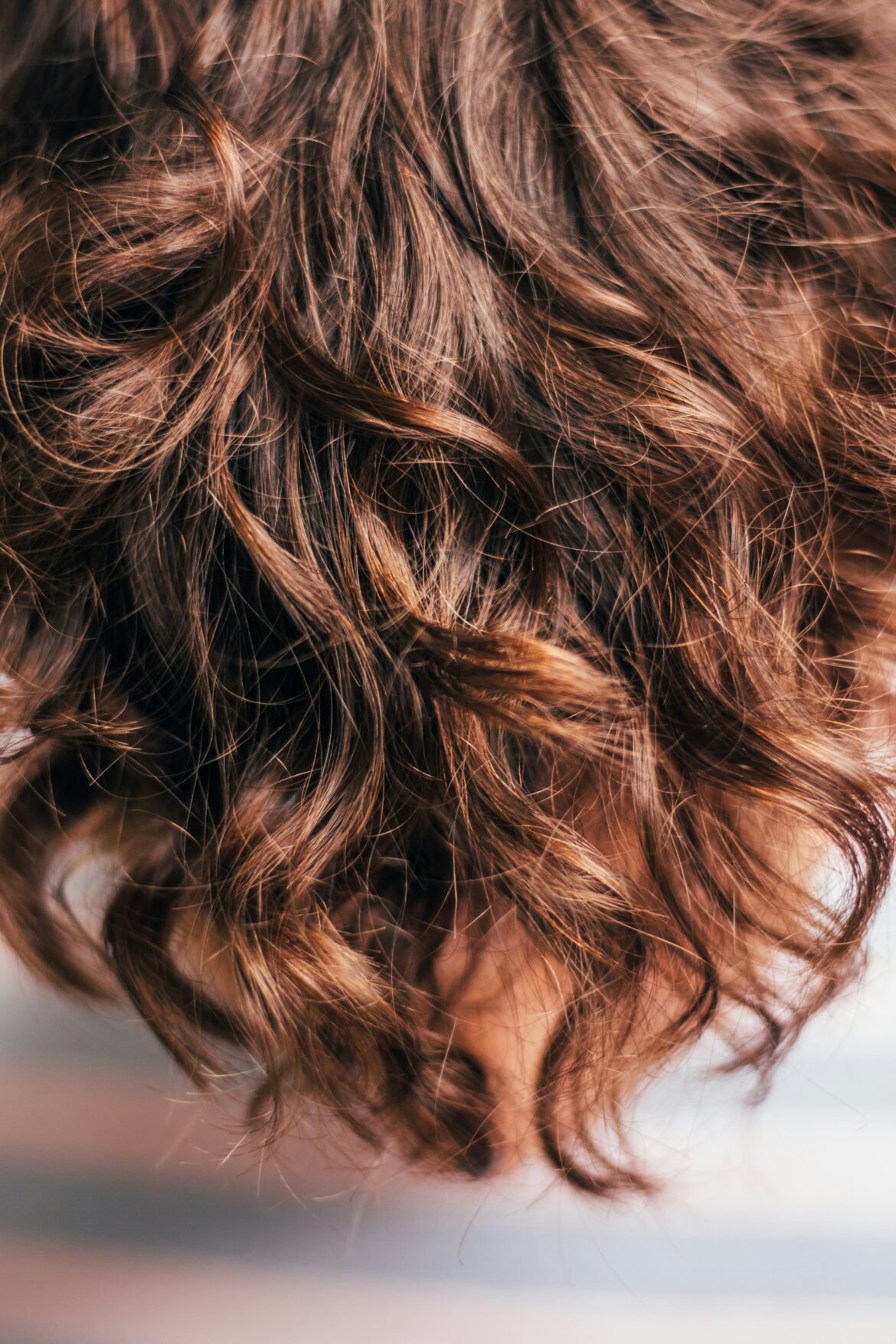Scalp Care Tips You’re Probably Skipping
The Forgotten Canvas: Why Your Scalp Deserves More Love
For years, I obsessed over my hair—trying new conditioners, masks, and styling products—without ever thinking twice about my scalp. If I’m being honest, the idea of “scalp care” barely crossed my mind. I’d shampoo, maybe throw in some conditioner, and call it a day.
But one summer, after weeks of stress and bad eating habits, I started noticing flakes, constant itching, and a dullness to my hair that no expensive serum could fix. At first, I thought it was just a bad shampoo, or maybe the weather. But slowly, I realized the problem wasn’t just my hair—it was the skin underneath it.
The scalp is basically an extension of the skin on our face. We’d never go a day without moisturizing or exfoliating our face, yet we treat our scalp like it doesn’t need the same care. Once I started giving it attention, the difference was almost immediate. The itchiness disappeared, the flakes calmed down, and my hair started growing thicker and shinier. It was like I’d uncovered the missing piece of my hair routine puzzle.

Why Scalp Care Changes Everything
Here’s the thing: your scalp is the foundation of your hair. Imagine trying to grow flowers in dry, neglected soil—it doesn’t matter how much you water the petals, if the roots aren’t healthy, the whole plant suffers. It’s the same with hair.
A healthy scalp means:
- Fewer flakes and less irritation
- Better hair growth (since your follicles aren’t clogged or inflamed)
- Shinier, stronger strands that look alive instead of limp
It’s crazy to think most of us spend money on expensive serums for our face but completely ignore the skin on our head that has over 100,000 hair follicles.
My Family’s “Scalp Care Awakening”
At first, I thought I was overreacting with all these new habits. But then my husband started complaining about flakes and thinning near his temples. I convinced him—half-jokingly, half-serious—to let me try my “new routine” on him.
We did a little Sunday spa night at home: a gentle scrub, a clarifying shampoo, and a scalp tonic with peppermint. He admitted he felt instant relief. Within a few weeks, even he couldn’t deny his scalp looked healthier and his hair had more volume.
The funniest part? Now he takes up just as much shelf space in the bathroom as I do with his scalp scrubs and serums. Even our daughter picked up on it. She now does “mini scalp massages” with me once a week, and I can’t help but think she’s learning earlier than I ever did. What started as my personal fix turned into a little family ritual that we all look forward to.
What Makes Scalp Care Work
Scalp care isn’t about buying the most expensive products. It’s about consistency and using the right steps to create a healthy environment for your hair to grow. When you massage your scalp, exfoliate gently, or use lightweight tonics, you’re helping blood flow to the follicles and clearing away buildup that can suffocate growth.
Dermatologists often remind us that most hair problems—dandruff, oiliness, even breakage—start with the scalp. Once you focus there, everything else falls into place.
What You Need for a Simple Scalp Routine
Here are the essentials I’ve found work best (and you probably already own a few of them):
- A gentle exfoliator or scrub (physical or chemical)
- Clarifying shampoo (use once a week to remove buildup)
- A scalp-targeted shampoo or tonic depending on your concern (hydrating, soothing, or balancing)
- A massage tool or just your fingers (to stimulate circulation)
- Apple cider vinegar (great for clarifying if you’re on a budget)
- Aloe vera gel (to soothe irritation)
- Tea tree or peppermint oil (but always diluted in a carrier oil)
- A wide-tooth comb and microfiber towel (to prevent breakage while styling)
You don’t need every single product. Start small—maybe with a scrub and a scalp-friendly shampoo—and add as you go.
My Step-by-Step Scalp Care
Here’s what my weekly scalp care looks like now:
- Weekly exfoliation – Before showering, I part my hair in sections and apply a small amount of scalp scrub or a DIY mix (brown sugar + coconut oil works wonders). I gently massage it in circular motions for 3-5 minutes.
- Clarifying shampoo – Once a week, I use a clarifying shampoo to reset my scalp. On other days, I stick to a sulfate-free gentle shampoo.
- Massage while washing – Instead of rushing, I spend two minutes massaging the shampoo directly into my scalp with my fingertips. This helps with circulation and makes the wash way more effective.
- Post-shower care – While my hair is still slightly damp, I apply a lightweight scalp tonic or serum directly onto the roots in sections, then massage it in.
- Protection – I try to avoid putting heavy products (like serums or sprays) directly onto my scalp because they can clog follicles.
I usually dedicate one evening a week to this “scalp reset,” and honestly, it feels more like self-care than a chore.
Extra Tips for a Healthy Scalp
- Consistency is key. You won’t see results after one scrub—it takes a few weeks. Think of it like skincare for your face.
- Hydrate and eat well. Omega-3s, zinc, and water all play a role in scalp health.
- Watch the heat. Hot water can strip your scalp, so rinse with lukewarm water instead.
- Manage stress. Stress hormones directly affect your scalp’s balance and can even trigger shedding.
Budget-Friendly Alternatives
If you don’t want to invest in lots of products right away, here are some easy swaps:
- Apple cider vinegar rinse: Mix 1 part ACV with 4 parts water to clarify.
- Aloe vera gel: Apply directly to soothe itchiness.
- Coconut or jojoba oil: Use as a pre-shampoo treatment for dryness.
For sensitive or color-treated hair, just make sure to go slow, patch test, and use gentle, fragrance-free options.
Why It’s Worth the Effort
I can honestly say focusing on my scalp has transformed my hair. Not only do I deal with fewer flakes and less itching, but my hair looks fuller, shinier, and healthier overall. The best part? I no longer spend crazy amounts on masks and treatments that only fix the surface.
Scalp care doesn’t need to be complicated. Think of it as giving your roots the same love you already give your face. Once you make it a habit, you’ll wonder how you ever skipped it in the first place.
Final Thoughts
Healthy, beautiful hair really does start at the root. By adding just a few simple habits—whether it’s a gentle scrub, a scalp massage, or a clarifying rinse—you can completely change your hair game.
It’s not about perfection, or even about spending hours in the bathroom. It’s about small, consistent acts of care that add up over time. Your scalp is the foundation of every strand on your head—take care of it, and the results will speak for themselves.

Frequently Asked Questions For Scalp Care
How often should I exfoliate my scalp?
Most people benefit from exfoliating their scalp once weekly. Those with oily scalps might need twice-weekly sessions, while sensitive scalps may do better with bi-weekly exfoliation. Always listen to your scalp—if it feels irritated, reduce frequency.
Can scalp care help with hair loss?
While scalp care can’t reverse genetic hair loss, it creates optimal conditions for healthy growth by improving circulation, removing buildup that can clog follicles, and reducing inflammation that may contribute to certain types of hair loss.
Is scalp massage really effective or just relaxing?
Scalp massage is both therapeutic and effective. Research shows it can increase blood circulation to follicles, potentially stimulating growth. It also helps distribute natural oils and can reduce stress, which is linked to some hair loss conditions.
Should I avoid conditioner on my scalp?
Generally, yes. Most conditioners are formulated for hair strands, not scalp skin, and can cause buildup that leads to oiliness and clogged follicles. Apply conditioner from mid-shaft to ends unless using a product specifically designed for scalp conditioning.
How do I know if my scalp is healthy?
A healthy scalp is generally comfortable (not itchy or painful), has minimal to no flaking, isn’t excessively oily or dry, and produces strong, growing hair. It should look similar in color to the skin on the rest of your body without persistent redness.
Can diet affect scalp health?
Absolutely. Your scalp requires proper nutrition like any other part of your body. Deficiencies in zinc, B vitamins, iron, and omega-3 fatty acids are particularly linked to scalp issues and hair problems.
Is dandruff the same as dry scalp?
No, though they appear similar. Dry scalp results from insufficient moisture and produces small, white flakes. Dandruff (seborrheic dermatitis) is caused by excess oil and yeast overgrowth, producing larger, yellowish flakes and often requiring medicated treatment.
How does hard water affect my scalp?
Hard water contains minerals that can build up on your scalp, potentially leading to dryness, irritation, and dull hair. Consider installing a shower filter or using a clarifying treatment regularly if you live in a hard water area.
Should I adjust my scalp care seasonally?
Yes. Most scalps become drier in winter and oilier in summer. Adjust your routine accordingly, with more moisturizing treatments in cold, dry months and more frequent clarifying in hot, humid weather.
Can stress really affect my scalp?
Definitely. Stress triggers inflammatory responses and hormonal changes that can alter oil production, disrupt your scalp’s microbiome, and even affect hair growth cycles. Stress management should be part of any comprehensive scalp care approach.
Is it normal for my scalp to itch after washing?
Occasional mild itching immediately after washing might be normal as your scalp dries. However, persistent itching suggests you may be reacting to a product ingredient, using water that’s too hot, or not rinsing thoroughly enough.
Can I use face products on my scalp?
Some facial products, particularly those for acne or exfoliation, can work well on the scalp in moderation. However, always check that ingredients won’t damage hair or leave residue that’s difficult to remove from hair-covered areas.

